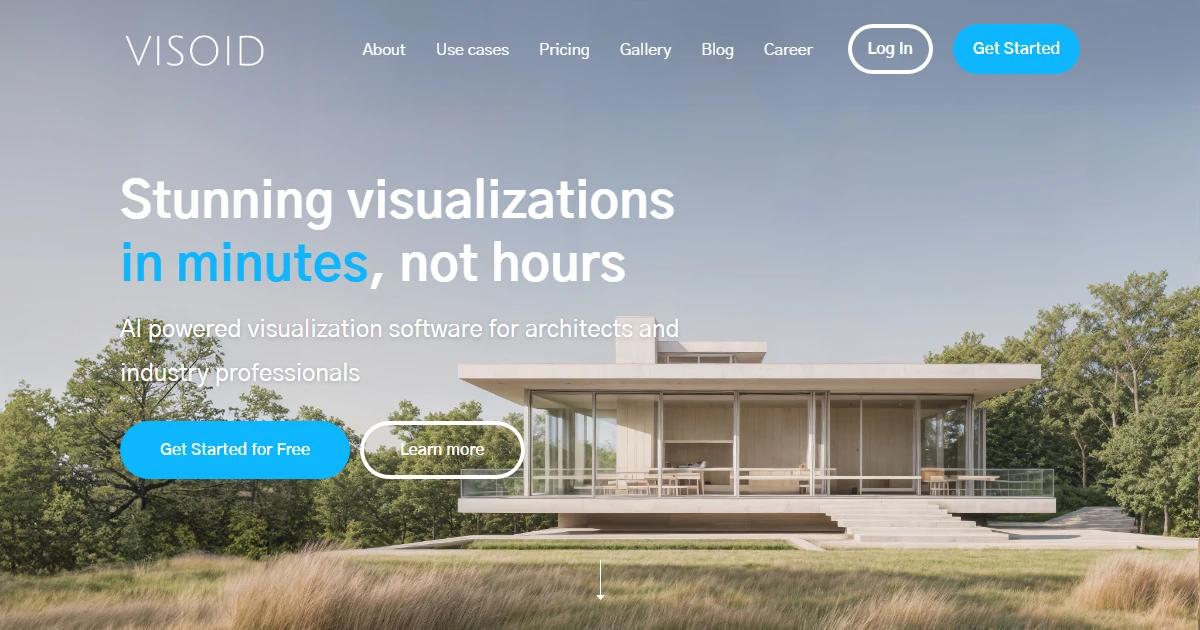
Visoid
Visoid is an AI-powered rendering application that streamlines the visualization workflow and creates high-quality visualizations quickly.

January 3rd, 2026
About Visoid
Visoid is an AI-powered rendering application that revolutionizes the visualization workflow by replacing complex traditional methods with a single tool built around a trained AI model. With Visoid, users can create amazing visualizations of their projects through a quick, iterative flow. The application simplifies the process by eliminating the need for extensive scene building, lighting or camera setup, texture and object libraries, and time-consuming test and final renders. It is designed to increase quality and save time by leveraging AI technology in the field of 3D architectural visualization. Visoid is adaptable to different workflows and can be used as a render engine with files from various 3D applications such as Twinmotion, Enscape, Sketchup, Archicad, and Revit.
Key Features
- Simplifies the visualization workflow by replacing complex traditional methods.
- Offers a quick, iterative flow to create amazing visualizations.
- Eliminates the need for extensive scene building, lighting setup, and camera setup.
- Does not require texture and object libraries for rendering.
- Reduces time-consuming test and final renders.
- Can be used as a render engine with files from various 3D applications.
- Supports creating visualizations based on sketches, 3D models, and images from visualization software like Twinmotion.
- Utilizes AI technology to improve the quality and efficiency of the visualization process.
- Adaptable to different workflows and can seamlessly integrate with existing 3D rendering pipelines.
- Provides real-time feedback and updates to improve the creative process.
- Helps architects, interior designers, and visualization professionals create realistic and immersive visualizations.
- Increases productivity by reducing the time and effort required for rendering tasks.
- Enhances the overall quality of visualizations by leveraging AI capabilities..
Use Cases
- Creating high-quality visualizations of architectural projects.
- Streamlining the visualization workflow for architects, interior designers, and visualization professionals.
- Saving time by eliminating the need for extensive scene building, lighting setup, and camera setup.
- Reducing the reliance on texture and object libraries for rendering.
- Improving the efficiency of the visualization process through real-time feedback and updates.
- Increasing productivity by reducing the time and effort required for rendering tasks.
- Enhancing the overall quality of visualizations by leveraging AI capabilities.
- Integrating with existing 3D rendering pipelines to improve the efficiency of the workflow.
- Enabling quick and iterative visualization iterations to refine designs efficiently..
Loading reviews...
